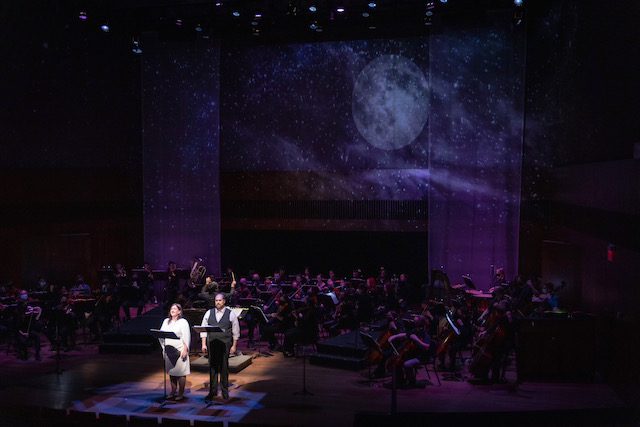Top Ten Performances of 2022
CHICAGO CLASSICAL REVIEW END OF YEAR
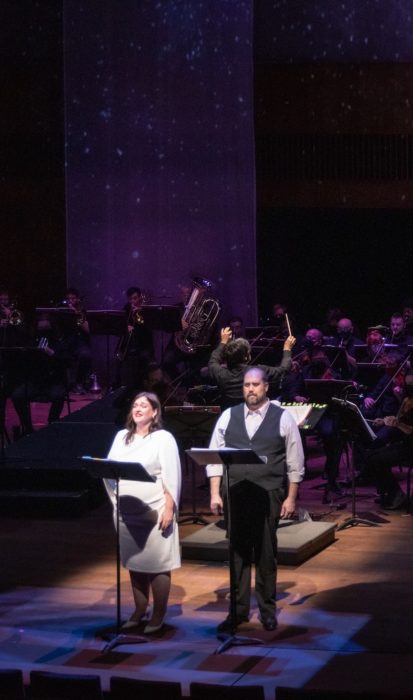
10. Korngold: Die Kathrin. Chicago Folks Operetta & UChicago Presents
The ambitious highlight of the University of Chicago’s Korngold Festival in April brought the belated U.S. debut of Erich Wolfgang Korngold’s opera Die Kathrin, 83 years after its premiere. The romantic storyline may be slight with preposterous coincidences, but the music is cast in Korngold’s richest, most opulent Late Romantic style. With a worthy cast, superbly idiomatic conducting by Anthony Barrese and a skillful, semi-staged concert performance, Chicago Folks Operetta and UChicago Presents pulled off the sleeper opera event of 2022.
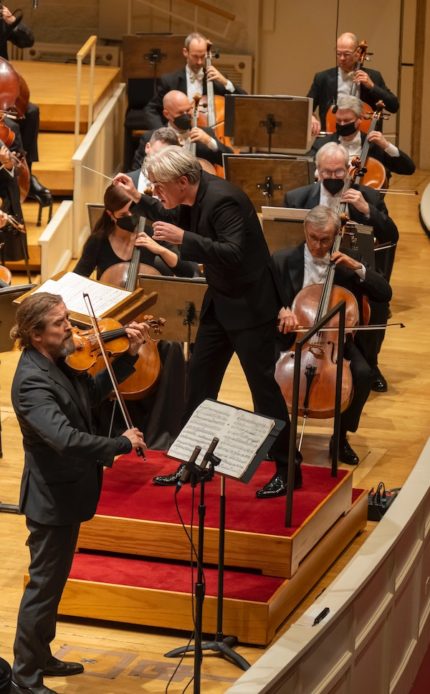
9. Vaughan Williams: Symphony No. 5. Edward Gardner/Chicago Symphony Orchestra
The 150th birthday anniversary of Ralph Vaughan Williams brought a rare CSO outing for the English composer’s music. Edward Gardner led a moving performance of his compatriot’s serene—yet not simplistic—Fifth Symphony, bringing out the symphonic strength as well as an essential spiritual dimension. Christian Tetzlaff’s barnstorming performance of Bartok’s gnarly Violin Concerto No. 2 on the first half teed up the VW nicely.
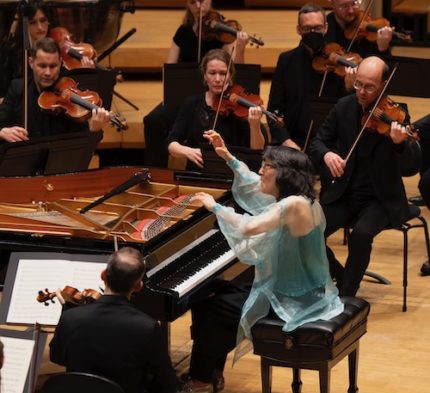
8. Mozart: Piano Concertos Nos. 23 and 24. Mitsuko Uchida/Mahler Chamber Orchestra
Mitsuko Uchida and the Mahler Chamber Orchestra offered some of the finest Mozart performances the city has heard in years in their March appearance at Orchestra Hall. Uchida and her Mahler colleagues brought a true chamber aesthetic to two Mozart piano concertos (Nos. 23 and 24) mining fresh interpretive depths in genuinely revelatory readings of the composer’s familiar scores. (Tim Sawyier)
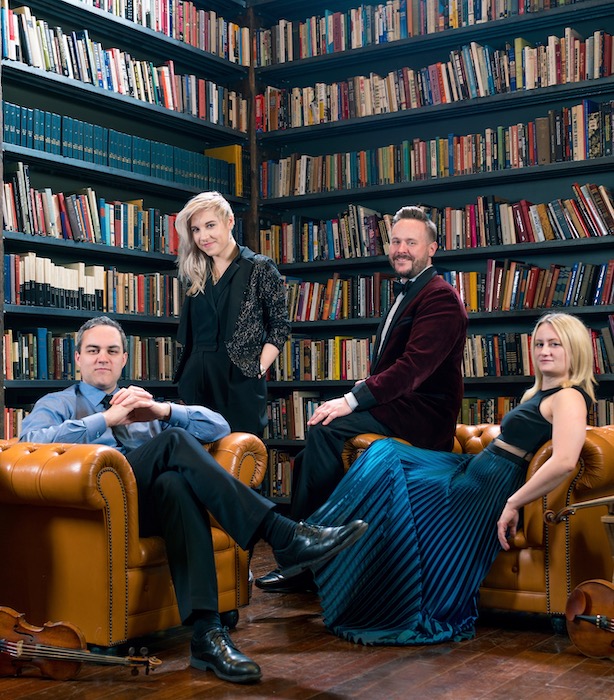
7. Thorvaldsdottir: Enigma. Spektral Quartet
In the Spektral Quartet’s final major event, the group bade farewell in March with a remarkable contemporary work. Commissioned by the Chicago-based ensemble, Anna Thorvaldsdottir’s Enigma is the first string quartet masterpiece of the 21st century—epic, mysterious and unsettling, conveying something of the bleak expanse and rugged rock formations of the composer’s native Iceland. The valedictory occasion added an apt elegiac cast to the music and the Spektral musicians, in a multimedia performance at the Planetarium, conveyed all the mystery and austere beauty of this score.
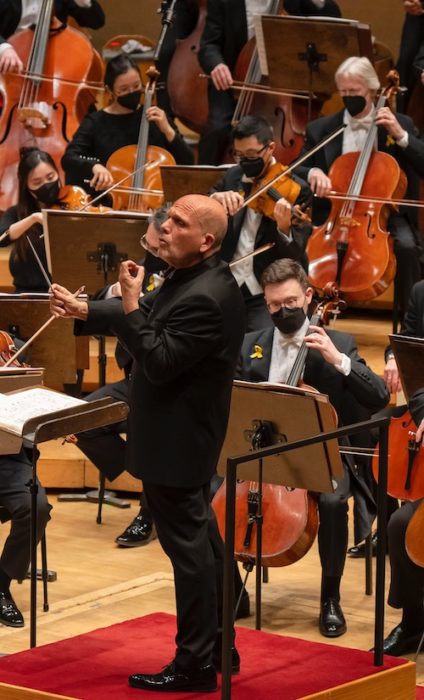
6. Mahler: Symphony No. 6. Jaap van Zweden/Chicago Symphony Orchestra
It’s been a good year for music of Gustav Mahler in Chicago, and Jaap van Zweden provided the CSO’s finest Mahler outing of the year in April, with a powerful and devastating Mahler Sixth.
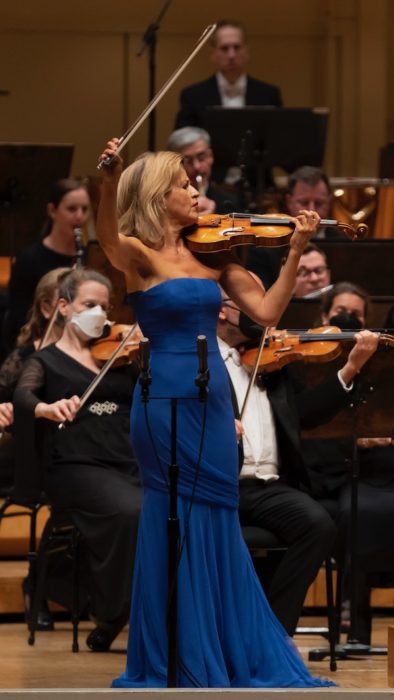
5. Beethoven: Violin Concerto. Anne-Sophie Mutter; Lina González-Granados/Chicago Symphony Orchestra
In a year that saw a remarkable number of first-class solo performances (see below), Anne-Sophie Mutter’s luminous Beethoven concerto in June took pride of place. With tender phrasing, she explored a vast range of pianissimos, playing with a hushed intimacy that made the music feel confessional. Conductor Lina González-Granados, a late sub for an ailing Riccardo Muti, brought some shaky moments at the podium, but not enough to undermine Mutter’s affecting performance.
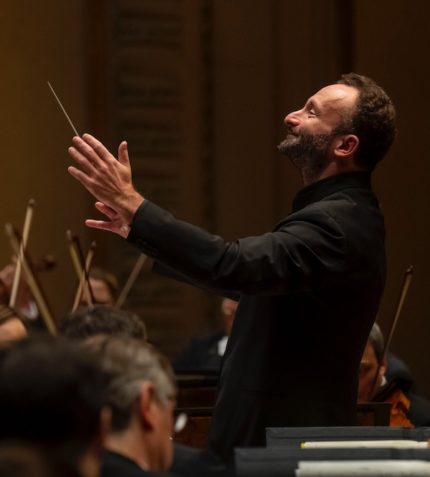
4. Mahler: Symphony No. 7. Kirill Petrenko/Berlin Philharmonic Orchestra
In the Berlin Philharmonic’s first Chicago stand in 13 years, conductor Kirill Petrenko led a fizzing, boldly projected and kaleidoscopic Mahler Seventh in November. Rarely has a Mahler symphony sounded more like a concerto for orchestra with bristling virtuosity on display at every desk.
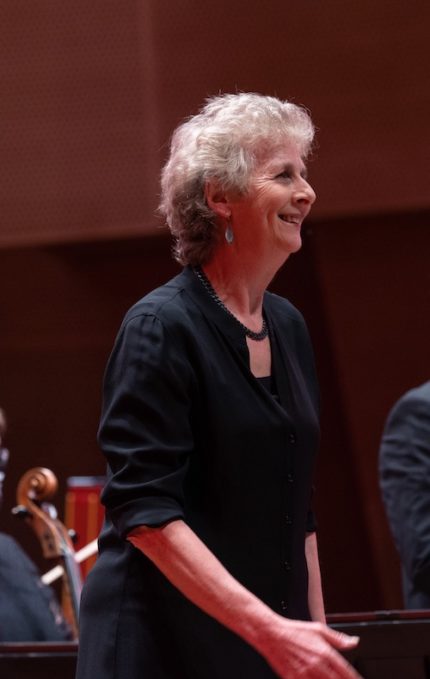
3. Handel: Jephtha. Dame Jane Glover/Music of the Baroque
Dame Jane Glover opened her 20th season at Music of the Baroque with one of the finest performances of her Chicago tenure. The September concert performance of Handel’s oratorio Jephtha was perfectly realized in every aspect, with a lineup of exceptional soloists and conducted with bracing vigor and deep sympathy by Glover. The orchestra delivered stellar playing and the MOB Chorus—in their first official assignment under new chorus director Andrew Megill—rose to extraordinary heights in their prominent role. Fortunately, this very special Handel occasion was recorded, and one hopes that it will be released for all to enjoy.
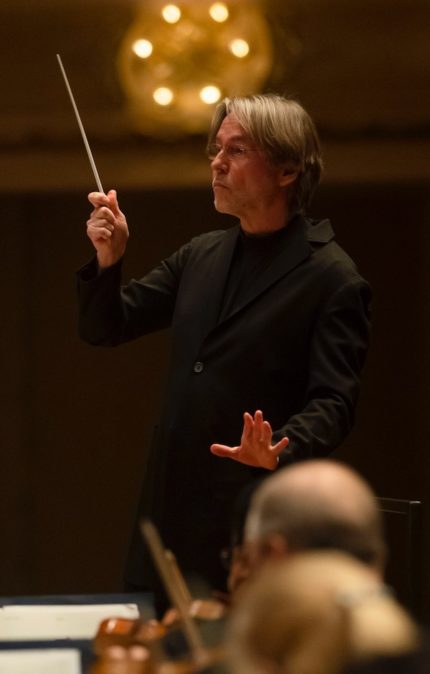
2. Music of Ravel, Dessner, Salonen & Stravinsky. Esa-Pekka Salonen/Chicago Symphony Orchestra
In two weeks in May-June, Esa-Pekka Salonen delivered the finest CSO programming of the year, a smart, roiling mix that inadvertently underlined how humdrum and repetitious CSO repertoire has become in the current era. In addition to a blistering heavy-metal Violin Concerto by rock musician Bryce Dessner, the concerts included Salonen’s own hard-charging Gemini, punchy Stravinsky and gloriously iridescent Ravel.
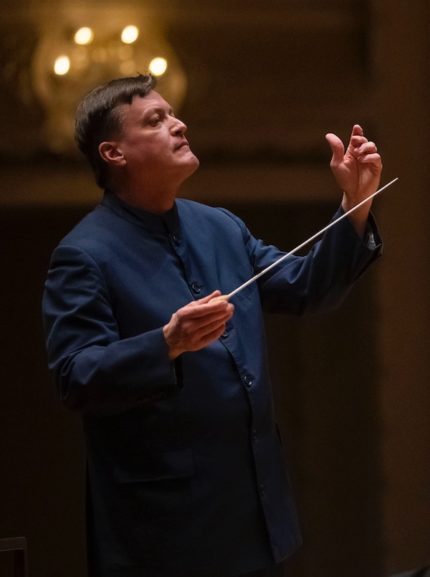
The return of Christian Thielemann to the Chicago Symphony Orchestra in October after an absence of 27 years was one of those rare, highly anticipated occasions that exceeded all expectations. The German conductor came and conquered, winning the musicians over with his professional manner, focused efficiency in rehearsals, and musical integrity. The result was incandescent Bruckner, an Eighth of unflagging dramatic grip, expressive depth and interpretive acuity, magnificently played across all sections.
Honorable mentions
Carlos Kalmar and the Grant Park Orchestra and Chorus in Vaughan Williams’ Dona nobis pacem. A riveting CSO Shostakovich Fifth under Manfred Honeck. A (refreshingly) traditional Tosca at Lyric Opera. Beethoven’s “Pastoral” Symphony (No. 6) and Verdi’s Un ballo in maschera (A Masked Ball) from Riccardo Muti and the CSO. Bach’s Easter Oratorio from Jane Glover and Music of the Baroque. And Third Coast Percussion’s Philip Glass program at the Field Museum.
A superabundance of stellar soloists
Few years have boasted such a dizzying array of first-class concerto performances as in 2022. In addition to Anne-Sophie Mutter and Mitsuko Uchida above, the memorable soloists included pianist Yefim Bronfman (Brahms), violinists Pekka Kuusisto (Dessner), Christian Tetzlaff (Shostakovich and Bartok), Simone Lamsma (Korngold) and Hilary Hahn (Tchaikovsky), and cellist Gautier Capuçon (Auerbach).
A bumper year for Bruckner (and Mahler)
Thielemann’s Eighth Symphony was clearly top of the Bruckner charts in 2022. But the year also brought outstanding CSO performances of Bruckner’s Second Symphony from Muti and a Fourth from Herbert Blomstedt. Mahler fared well too with (in addition to the Top Ten entries) a performance of the Rückert-Lieder, sensitively rendered by mezzo-soprano Elīna Garanča, and the Ninth Symphony from Carlos Kalmar and the Grant Park Orchestra.
Most overrated work
In February, Muti and the CSO performed Florence Price’s Symphony No. 3 in its belated Chicago debut. One can give Price her due as a pioneering figure—a black woman bravely trying to make a career as a classical composer while fighting against the entrenched social and racial barriers of the era. But despite the encomia from some quarters, that heartening backstory doesn’t make Price’s mediocre Third Symphony a masterpiece.
Missed Operatic Opportunity Award
In another disappointing year for opera in Chicago, Lyric Opera managed to snatch defeat from the jaws of victory once again, blowing the company’s debut production of Verdi’s Don Carlos in its original five-act French version. Unevenly cast and conducted, with a spectacularly ugly unit set, this botched Verdi added yet another casualty to the mounting artistic body count of the endless Anthony Freud era.
And yet last year the clueless LOC board renewed Freud’s contract through 2026. To quote press agent Sidney Falco (Tony Curtis) in Sweet Smell of Success, “You’re walking around blind Frank, without a cane!”
Most surprising personnel move
The CSO declined tenure to popular principal horn David Cooper.
The maestri that bloom in the spring tra-la
A pair of impressive CSO podium debuts came in April and May from young conductors Klaus Mäkelä and Karina Canellakis.
Glass ceiling broken
Riccardo Muti’s excursions into American music have been highly selective, to put it mildly. But give credit where credit is due. Philip Glass’s works have been conspicuously ignored by the CSO for decades, yet it was Muti who finally gave the popular and prolific composer belated recognition in February, leading an exuberant performance of Glass’s rambunctious Symphony No. 11.
Shifting music director chairs
For many—CSO members and concertgoers alike—Christian Thielemann’s magisterial Bruckner concerts this fall made the German conductor an instant favorite to succeed Riccardo Muti as music director. With Bruckner’s 200th birthday coming up in 2024, the possibility is indeed tantalizing. It may be hard to imagine Thielemann accepting an American post, but who would ever have predicted Riccardo Muti as music director when Daniel Barenboim stepped down?
Considering the success of those Bruckner performances and the positive impression he made on musicians, I would now add Thielemann to the short list of potential CSO music director candidates published earlier this year. Since then, the CSO appears to have cooled on Marin Alsop while Manfred Honeck and Jakub Hrůša have become stronger possibilities.
But don’t count Thielemann out. T as music director with Esa-Pekka Salonen or Susanna Mälkki as principal guest conductor to provide more contemporary and adventurous fare? There have been worse ideas.
Best composer debut
Under music director Stilian Kirov, the Illinois Philharmonic Orchestra has quietly done more than many to promote local talent by appointing a composer in residence every season. In November Kirov and the IPO gave fine advocacy to the world premiere of the Celestial Symphony by the new CIR, Jonathan Cziner, a young composer who clearly bears watching.
Requiescat in pace
Among those who departed in 2022 were composers George Crumb and Ned Rorem, longtime CSO principal flute Donald Peck, former Chicago Philharmonic music director Larry Rachleff, MOB choral director William Jon Gray, and CCR contributor Michael Cameron

